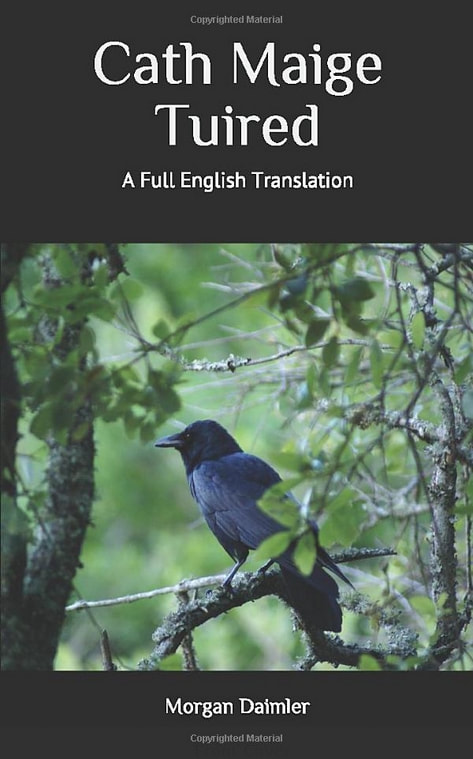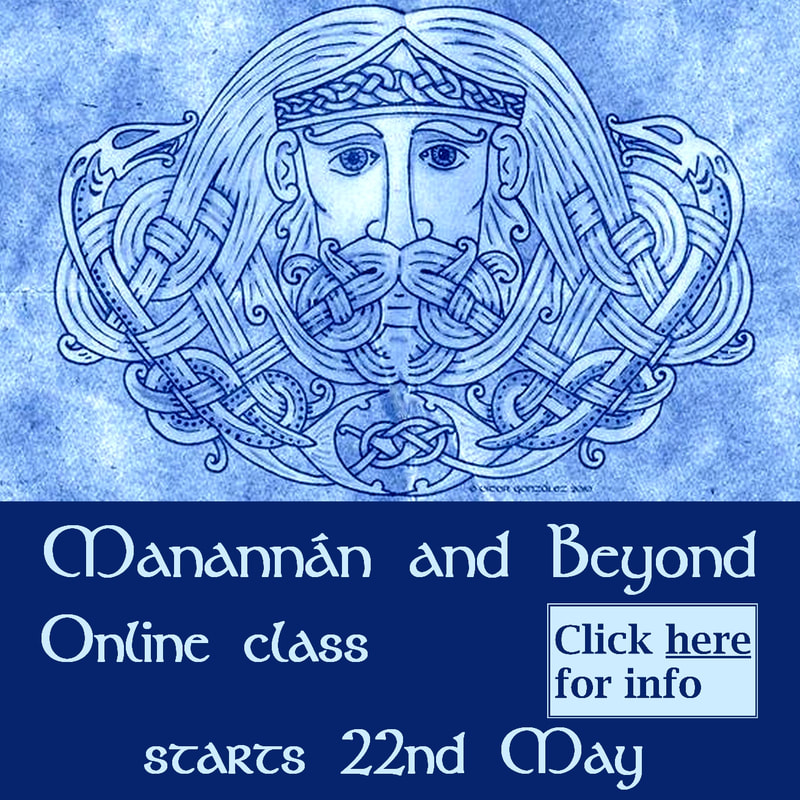I’ve heard Morgan say that she decided to learn Sengoidelc (Old Irish) because she was unhappy with Stokes’ translation due to its omissions, so this translation is a nice thing, and an understandable thing, for her to be doing.
Of course, not being a scholar of Sengoidelc, I can’t judge any translator’s work on how well it represents the style of the original, or its accuracy. But translations of Irish texts aren’t really for scholars of the language – they are for those of us who aren’t! We have to trust our translators, and for that reason I hope that this translation will be read and commented on by a few professional Celticists, so that readers who want to can get a sense of the quality of this work, which I suspect is high.
After so much preamble, you’re probably wondering what I think of this book. There are many things I like about it. The fact that it is slim and inexpensive should make it accessible to a wider audience, although this was achieved by keeping the extra material to a minimum. The author’s note is two short pages, there’s no index, introduction, or other interpretive material, which I suspect many of Morgan’s readers would find helpful. However, the footnotes are very good, and I love the fact that they’re placed at the bottom of the page, not in some mysterious location at the back of the book. I don’t mind reading footnotes, but I detest leafing back and forth and losing my place. For me this is a huge bonus.
Let’s talk a bit more about the footnotes. One thing I like is that Morgan has given the meaning of characters’ names. This is something that translators of myths and bardic poetry don’t do often enough, in my opinion. It instantly adds a layer of insight that is otherwise lacking. The footnotes are also very “honest”. Inevitably, there are many problematic words in texts this old, so where there is doubt, or where she has disagreed with other translators, Morgan has simply explained her choice, and often given Gray and/or Stokes’ alternatives. I spoke earlier of “trusting” a translator, and such an open approach to things helps the reader to do just that.
Cath Maige Tuired is a good story. So an edition like this will be really valuable if that aspect is to the fore, which I think it is here. Since I already know the story, and love it, it’s a little hard for me to put myself in the shoes of a first-time reader, but I think they would enjoy it, and feel very supported by the footnotes.
As for the language in the prose sections, Morgan’s focus on accuracy might impede the flow a little, but I respect her clear priorities, and didn’t find it awkward or “clunky”, which is a danger with literal translations. In fact, many passages were a joy to read.
The real surprise, though, was the poetry. Literal translations of poetry often fall flat, but these do not. It’s obvious that translators are wary of these passages with good reason. Medieval poetry in Celtic languages is notoriously obscure, sometimes intentionally so. There is a love of puns and double-meanings which sets traps for translators at every step, and a tendency by either poets, or scribes, to “antique” the language further for effect.
The only other translation of these passages that I’ve seen were done by Isolde Carmody as part of an MA thesis. (Lugh’s poem here, the Morrigan’s poems here.) Since they will have had the oversight of a tutor, I assume that they are reasonably plausible. They are significantly different than Morgan’s, which definitely flow better and make at least as much sense. My big frustration, here, is that Morgan chose not to divide the poetry into lines, in all but one case. Maybe this was done to keep the cost of the book down, as it would have added some pages, but I think it loses a sense of rhythm and space for the reader when it’s dumped into paragraphs this way.
In her presentation of this book, Morgan places quite a bit of emphasis on the fact that she is an amateur translator, which is understandable and very honest. However, it think her efforts deserve a bit of attention from those who are on the academic side, as they are the only ones able to comment on the quality of the translation.
| Cath Maige Tuired: A Full English Translation by Morgan Daimler is available from Amazon.com ($6.50) and Amazon.uk (£4.50). |




 RSS Feed
RSS Feed




